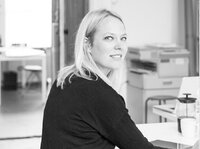Hem's Boa pouf has something very familiar about it – yes, indeed, the delightfully round Boa looks a bit like a doughnut! Designed by Sabine Marcelis, this versatile piece of furniture has many different functions: it can be used for sitting, lounging or just resting your tired feet after a long day. The sympathetic pouf brings joy to any space, and its vibrant colours and bold geometric shape almost literally breathe life into the room around it.
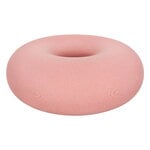
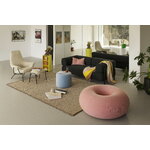
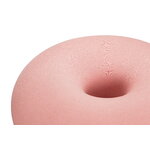
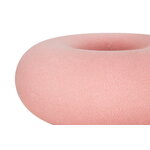
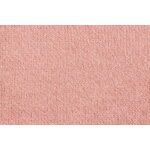
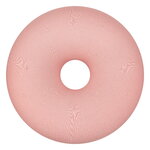
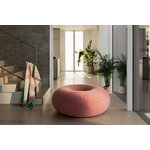
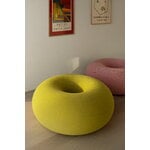
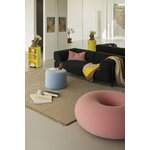
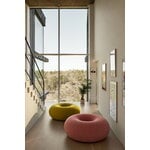
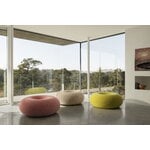
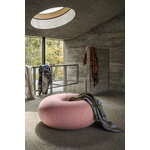
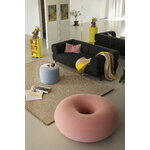
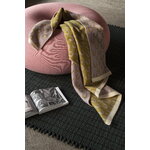
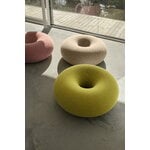
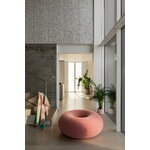
Boa pouf, cotton candy
Hem
Description
Hem's Boa pouf has something very familiar about it – yes, indeed, the delightfully round Boa looks a bit like a doughnut! Designed by Sabine Marcelis, this versatile piece of furniture has many different functions: it can be used for sitting, lounging or just resting your tired feet after a long day. The sympathetic pouf brings joy to any space, and its vibrant colours and bold geometric shape almost literally breathe life into the room around it.
Product details (13)
- Colour
- Pink
- Width
- 114 cm
- Height
- 44 cm
- Diameter
- 114 cm
- Seat depth
- 114 cm
- Seat height
- 44 cm
- Frame material
- Wood
- Seat cushion
- PU foam
- Upholstery fabric
- 80% wool, 20% nylon
- Abrasion resistance
- 100,000 Martindale
- Pilling
- 2-3
- Lightfastness
- 5-6
- Weight
- 24 kg
- Product ID
Designer
Sabine Marcelis is a Dutch designer, based in Rotterdam. After graduating from the Design Academy of Eindhoven in 2011, Marcelis began working in the field of product, lighting, and space design. Marcelis has won numerous design awards and her work is characterized by clean lines and pure forms that emphasize the properties of the material as well as sensory experiences.
View all productsReviews (0)
Sustainability
The Product Sustainability Framework, our criteria of sustainable design, helps you find the most sustainable products in our selection. Read below which sustainability criteria this product has met.
Working conditions & labour 8/9
-
Equal opportunities for all employees
-
Commitment to UN Global Compact, fair compensation for all employees
-
Corporate responsibility requirements defined and communicated for suppliers
-
Systematic work for improved inclusion and well-being in the workplace
-
Transparent supply chain
-
Suppliers' compliance to a code of conduct ensured
-
Compliance to the UN Guiding Principles on Business and Human Rights ensured in the supply chain
-
Support for community involvement in the supply chain
-
Direct suppliers audited and certified
Eco-friendly production 8/9
-
Fair and resource-wise water-use in production
-
No incineration or landfilling of returned items
-
No use of endangered species as materials
-
No direct environmental emissions or waste (excl. GHGs) from production
-
The sustainability of direct suppliers' production is addressed and monitored
-
Production and material sourcing that respect biodiversity, animal rights, and natural ecosystems
-
Material-efficient and ecological packaging
-
No potentially harmful chemicals used in own production
-
Positive impact on nature’s well-being through operations that regenerate natural ecosystems
Climate impact 4/8
-
Company's direct greenhouse gas emissions identified and commitment to reduction
-
Product's carbon impact identified and commitment to reduction
-
Guidance on energy- and eco-efficient use of the product
-
100 % renewable energy in own production and operations
-
Contribution to climate initiatives beyond the brand’s direct operations
-
Low-carbon or compensated transportation
-
Carbon footprint of the product calculated and goals set to reduce it
-
Carbon neutral or carbon negative product
Sustainable materials 5/6
-
Sustainable and long-lasting material choices
-
No harmful or hazardous substances
-
Responsible raw material sourcing and production
-
Materials suited for circularity: monomaterials, recyclable finishings, renewable or recycled contents etc.
-
Outstanding materials in terms of innovativeness, responsibility, sustainability and circularity: local production or sourcing, 100 % recycled content, C2C-certification etc.
-
Ecological materials: natural, biodegradable, recyclable or recycled contents
Circular design 4/5
-
High aesthetic quality promoting long-term use of the product
-
Technically durable product design and material choices
-
Design for enduring life-long quality
-
Design and support for product maintenance, repair and upgradability
-
Innovative circular design solutions: circular service system, resale platform, remanufacturing, collection of used products, etc.
















